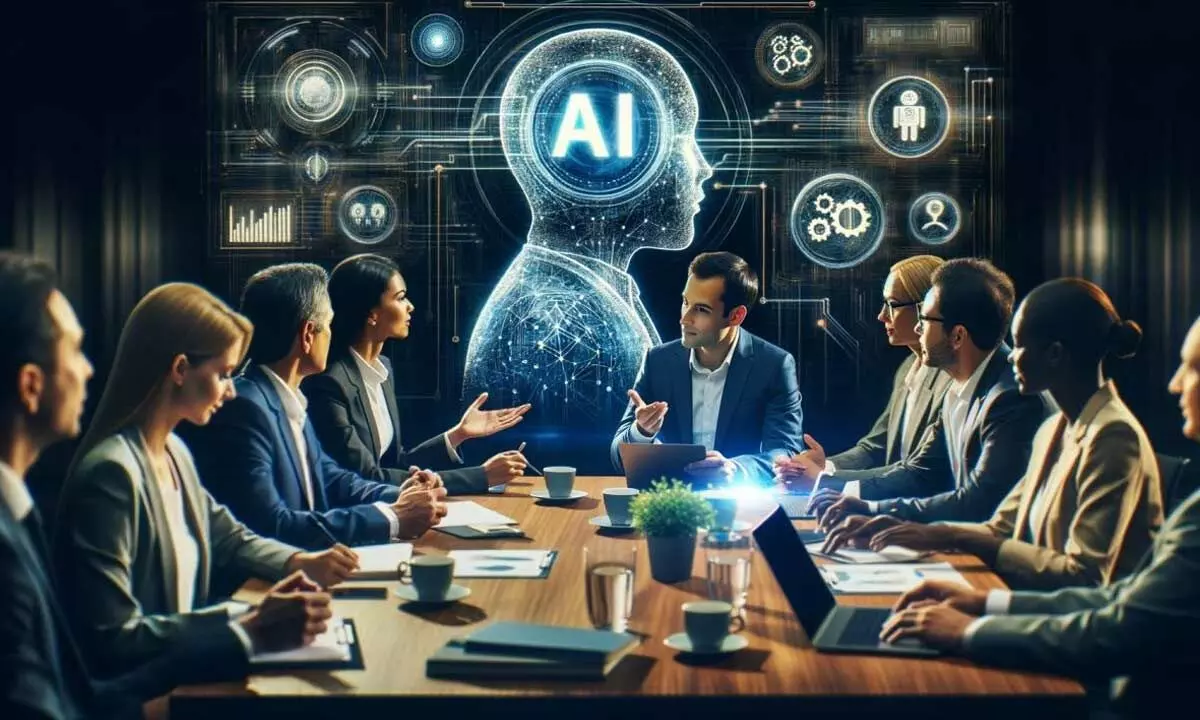Mastering AI for workplace success

Balancing performance and privacy
Artificial Intelligence (AI) is revolutionizing workplaces worldwide, offering unparalleled solutions to optimize operations and enhance decision-making. From automating repetitive tasks to predicting trends, AI systems are becoming integral to organizational processes. However, as companies increasingly adopt these technologies, concerns over employee privacy are taking center stage. The challenge lies in implementing AI-driven solutions without compromising personal space and trust.
A recent study, ‘Watch Out! You Are Live: Understanding the Impact of AI on Employee Privacy’, published in the Communications of the Association for Information Systems (CAIS), delves into the implications of AI-driven performance monitoring. It highlights the fine line organizations must walk between reaping productivity benefits and safeguarding employees’ autonomy.
AI as a game-changer in monitoring and operations
AI systems enable organizations to track workflows with remarkable precision. For example, Amazon’s AI-powered wristbands monitor worker movements, while Walmart’s sound sensors analyze customer interactions. These tools can significantly boost efficiency, streamline processes, and improve customer service.
However, such continuous monitoring has sparked concerns among employees, with some likening the experience to being under constant surveillance. Statements like, “I feel like I’m being watched all the time,” reflect the anxiety such technologies can foster. These concerns emphasize the need for thoughtful implementation to maintain trust.
Training: The key to ethical AI integration
The responsible integration of AI begins with robust training programs for both managers and employees. Transparency is crucial—employees should be informed about how AI collects and uses data. Clear communication fosters trust and ensures AI tools are seen as enablers, not surveillance instruments.
Moreover, managers must understand and explain AI-generated insights to their teams. This “explainable AI” approach minimizes resistance and builds confidence in the system. Organizations can also adopt privacy-focused technologies like pseudonymization and encryption to protect sensitive data while leveraging AI’s benefits.
According to the study, when employees perceive the advantages of AI—such as fair performance evaluations or operational efficiency—they are more likely to accept its presence, provided their privacy concerns are addressed.
Unlocking AI’s strategic potential
AI’s true potential lies in its ability to enhance decision-making and streamline processes. Predictive models can forecast market trends, helping employees and managers prepare for seasonal changes or emerging opportunities. For example, performance monitoring systems can identify areas for improvement, allowing organizations to proactively address gaps before they escalate.
However, the study underscores that AI should not replace human judgment in critical decisions. Tasks such as hiring, promotions, or terminations must involve human oversight to ensure fairness and ethical considerations.
Addressing privacy concerns
The anxiety surrounding AI-based monitoring underscores the importance of balancing innovation with employee well-being. Misuse of AI can lead to unintended consequences, such as fostering a culture of mistrust. For organizations to succeed, they must prioritize transparency and responsible use of AI tools.
By designing systems that empower employees rather than control them, organizations can create environments where workers feel valued and trusted. Aligning AI tools with organizational goals while respecting personal boundaries is key to long-term success.
A call for continuous learning
As AI technologies evolve, ongoing training and education for both managers and employees are essential. Organizations that invest in upskilling their workforce will be better equipped to adapt to new advancements and maintain their competitive edge. Ultimately, the goal of AI integration should extend beyond operational efficiency. By fostering trust and innovation, organizations can create workplaces where employees feel empowered to contribute their best. AI, when used responsibly, can serve as a powerful tool to enhance productivity while preserving the integrity of the workplace. The future of AI in the workplace holds immense promise, but its success hinges on striking the right balance between innovation and employee privacy.
Ashneet Kaur and Sudhanshu Maheshwari are assistant professors in Organisation and Leadership Studies at SPJIMR.








